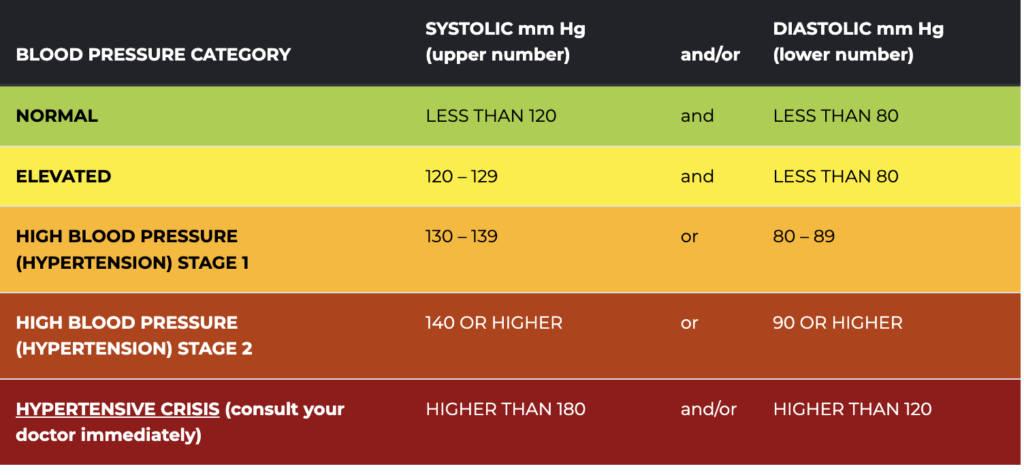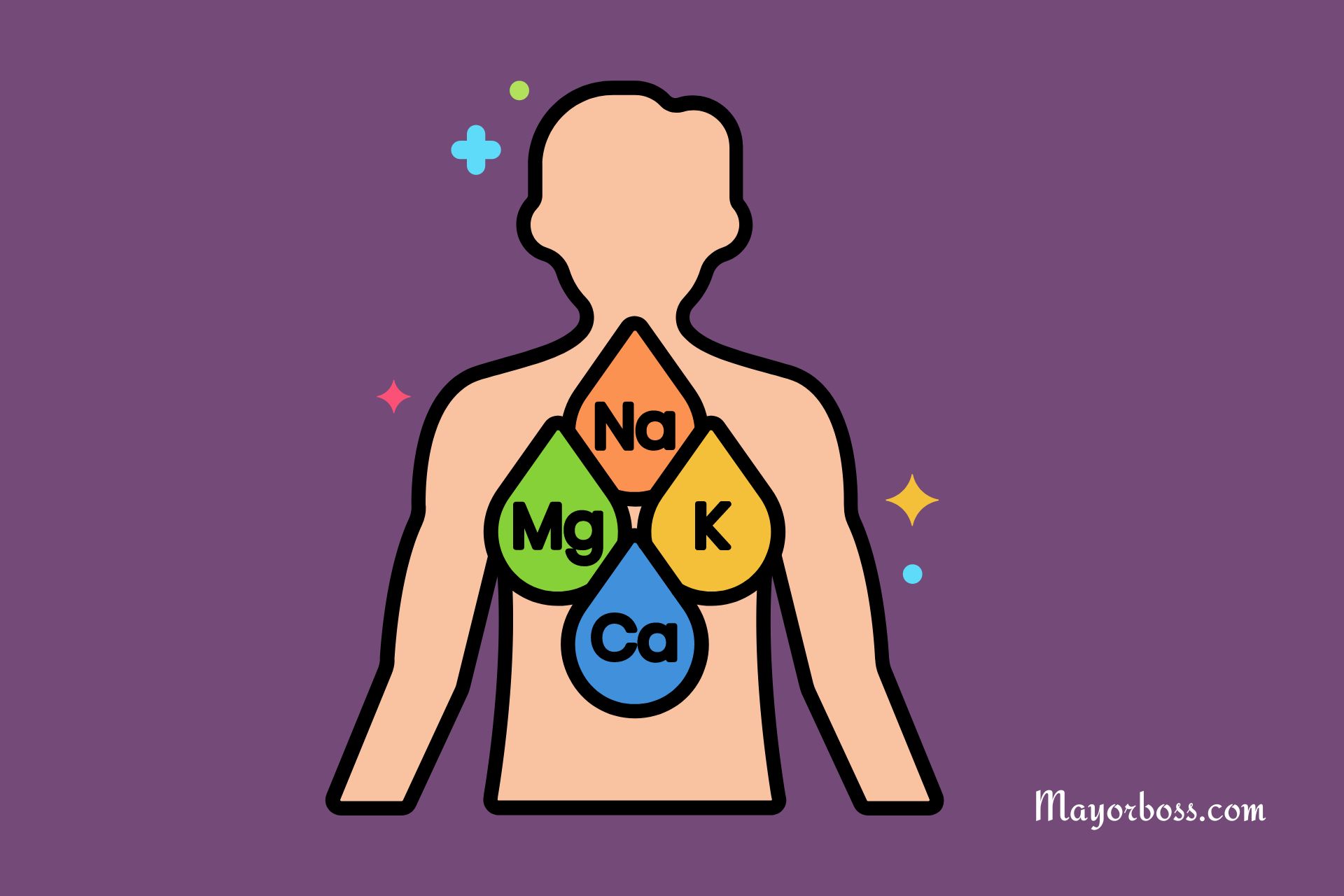Early Warning Signs Your Blood Pressure Is Dangerously High (1 In 3 Don’t Know They Have It!)
High blood pressure. You may also hear medical experts call it hypertension, and it can be very dangerous if left unaddressed. By the end of this article, you will understand the warning signs, the dangers, and the ways you can help keep your blood pressure under control.
According to the National Heart, Lung, and Blood Institute, “About 1 in 3 U.S. adults with high blood pressure aren’t even aware they have it and are not being treated to control their blood pressure. That’s why it is important to have your blood pressure checked at least once a year. Regular monitoring using home blood pressure is also recommended.” These words should alert us all. High blood pressure can progress quietly, so scheduled checkups will help catch it early. If you make a habit of measuring blood pressure, you can detect changes before they become significant problems.
But… What is High Blood Pressure?

High blood pressure often develops slowly, and many people do not notice any changes. Yet it can cause serious damage over the long run. When the force of blood is consistently high, your heart and blood vessels must work harder. In time, the walls of your arteries can become less elastic, which raises your risk of serious conditions like heart disease or stroke.
Why High Blood Pressure Can Be Dangerous
High blood pressure is sometimes called the “silent killer.” This is because you may not feel ill right away. Your heart might adapt to the extra workload without giving you obvious signs that anything is wrong. Meanwhile, the constant pressure can quietly harm your arteries and organs. Over time, it can lead to complications, including:
- Heart Disease: Elevated blood pressure can enlarge the heart’s left ventricle, making it work too hard. This strain may lead to heart failure if not treated.
- Kidney Damage: The kidneys need healthy blood vessels to filter waste products. High blood pressure can damage these blood vessels, leading to kidney disease.
- Vision Loss: High pressure can affect tiny blood vessels in the eyes, which might cause blurred vision or even permanent sight loss.
- Stroke: When blood pressure is too high, it can increase the chance of artery blockages or bleeding in the brain.
What are the Early Warning Signs and Symptoms of High Blood Pressure
Even though high blood pressure is often without symptoms, there are times when certain bodily cues may appear. If you experience any of these sensations, it is advisable to check your blood pressure or consult a healthcare professional:
- Frequent Headaches
A dull, throbbing headache, especially in the back of your head, might be a warning sign. While there are many causes for headaches, those caused by high blood pressure often feel more persistent or strike at certain times, such as after waking up. - Dizziness or Lightheadedness
Feeling dizzy does not necessarily mean you have high blood pressure, but frequent episodes may indicate that your body is under stress. - Blurred Vision
Sudden or occasional blurry eyesight may mean that high blood pressure has begun to affect the small blood vessels in your retina. If you have unexplained changes in vision, seek medical advice. - Shortness of Breath
When your heart is struggling with increased pressure, you may feel winded more easily. This might be noticeable when walking upstairs or doing normal everyday tasks. - Chest Discomfort
Chest pressure or discomfort is never something to ignore. It might indicate your heart is having difficulty coping with stress from high blood pressure. - Fatigue or Confusion
Persistent tiredness or mental confusion could be a signal that something is amiss with your circulatory system.
It is important to remember that many individuals with high blood pressure do not notice any of these signs. That is why checking your blood pressure regularly is essential, even if you feel perfectly fine.
Risk Factors for High Blood Pressure
You may be wondering: who is at risk for high blood pressure? While high blood pressure can appear at any age, even in children, several factors might raise your chances. These include:
- Family History
If your parents or siblings have high blood pressure, your likelihood of developing it increases. Always be honest with your healthcare provider about such a family history. - Obesity
Carrying excess weight can place more stress on your blood vessels and heart. Eating a balanced diet and staying physically active can help maintain a healthy weight. - Smoking
Tobacco use damages artery walls, contributing to high blood pressure. Quitting smoking can protect your vessels from further damage. - High Sodium Intake
A diet too rich in salty foods can cause water retention, which adds to blood pressure. Try to watch your salt intake by reading labels and choosing fresh foods when possible. - Stress
Frequent worry and anxiety may temporarily raise blood pressure. Over time, stress can contribute to unhealthy habits such as overeating or smoking. - Physical Inactivity
When you remain inactive, your heart does not get the regular exercise it needs. Even moderate daily activity, like walking, can help keep your heart strong and healthy. - Excessive Alcohol Consumption
Drinking more than moderate amounts can raise your blood pressure. The American Heart Association generally advises that men should limit themselves to two drinks a day and women to one. - Age
Although high blood pressure can occur at any age, the risk increases as people get older. That said, with a sensible diet and exercise, you can still help keep your pressure in the healthy range.
The Importance of Knowing Your Numbers
Because so many individuals with high blood pressure remain unaware of their situation, it is crucial to know your numbers. The guidelines for adults often categorize blood pressure readings as follows:
- Normal: Less than 120/80 mmHg
- Elevated: Systolic between 120-129 and diastolic less than 80
- Stage 1 Hypertension: Systolic between 130-139 or diastolic between 80-89
- Stage 2 Hypertension: Systolic at least 140 or diastolic at least 90
Of course, these are general ranges. Your doctor may recommend specific goals depending on your overall health. Still, if you notice your readings consistently climbing into the high range, it is time to seek medical advice.

Source: American Heart Association
How to Check Your Blood Pressure
Keeping an eye on your blood pressure is easier today than ever before. Many home monitoring devices are available. Some attach around your upper arm, while others may wrap around the wrist. Although the arm cuff is usually more reliable, any well-calibrated device, when used properly, can help you track your readings.
- Find a Good Spot
Sit calmly in a chair with your back supported. Place both feet on the floor and rest your arm on a table at heart level. Relax for at least five minutes. - Wrap the Cuff Correctly
Make sure the cuff is snug, but not too tight. For an upper-arm cuff, position it around the upper arm, just above the elbow. - Follow Directions
Turn on your device and remain still. Moving around can change the reading. - Record Your Readings
Write them down with the date and time. Or store them electronically if your monitor has that function. - Compare Results
Check your readings consistently. If your numbers are often above normal, consult your healthcare provider.
By testing your blood pressure daily or a few times a week—especially if you have risk factors—you give yourself a chance to spot problems early. Then you can work with your doctor to make changes as needed.
What to Do if Your Blood Pressure Is High
If you find that your blood pressure readings are higher than normal, do not panic. Many steps can help control your numbers. Speaking with your physician is always the first measure, but let us review a few other valuable approaches:
- Lifestyle Changes
- Eat a Balanced Diet: Focus on whole grains, fruits, vegetables, lean proteins, and low-fat dairy. Reduce salt and sugar intake.
- Stay Active: Aim for at least 30 minutes of moderate activity five days a week. Choose walks, bike rides, or swimming.
- Maintain a Healthy Weight: If you are overweight, shedding extra pounds may help lower your blood pressure.
- Quit Smoking: Each cigarette harms your arteries. Ask your doctor for tools that can make quitting easier.
- Limit Alcohol: Too much drinking can raise your blood pressure, so keep it moderate.
- Manage Stress
- Relaxation Techniques: Deep breathing, meditation, and hobbies like gardening can reduce tension.
- Share Your Feelings: Talking to friends or family members about worries may lighten your stress.
- Plan Your Day: Organized tasks can minimize chaotic schedules, which often cause stress.
- Take Prescribed Medications
Your doctor may decide you need medication to bring your numbers down. These medicines may include diuretics, beta-blockers, ACE inhibitors, or calcium channel blockers. They often work in different ways to help your heart and arteries relax or remove extra fluid from your body.
When to Seek Immediate Help
If you have extremely high blood pressure and experience acute symptoms such as severe headache, chest pain, shortness of breath, or sudden weakness on one side of your body, you should seek emergency care. These may be signs of a hypertensive crisis, heart attack, or stroke. Calling for immediate medical assistance could save your life.
The Role of Regular Medical Visits
Yearly checkups are a smart move, even if you feel fine. During these visits, your doctor will take note of your blood pressure readings and might recommend changes to your diet, exercise plan, or medications. Suppose you do not feel well or think something is amiss. In that case, it is always safer to visit your healthcare provider sooner rather than later. Time is valuable when dealing with potential health issues.
Additional Tips for Good Health
While you are focused on keeping your blood pressure in a healthy range, do not forget to support the rest of your body. Here are a few more steps that contribute to overall well-being:
- Stay Hydrated
Drinking water helps keep blood volume in balance and supports other bodily functions. - Get Adequate Sleep
Aim for about seven to nine hours of sleep each night. Proper rest helps your body regulate hormones that influence blood pressure. - Limit Caffeine
While a small amount of coffee or tea can be fine, too much caffeine may raise your blood pressure temporarily. - Stay Connected
Having regular social interactions and strong relationships can help reduce stress levels. - Be Aware of Other Health Conditions
If you have diabetes or high cholesterol, keep them controlled. These conditions often go hand-in-hand with high blood pressure.
Conclusion
I trust that you now have a clearer view of why high blood pressure is called the silent killer—and why 1 in 3 adults do not know they have it. As the National Heart, Lung, and Blood Institute advises, checking your blood pressure at least once a year is vital, and regularly at home if you have risk factors.






